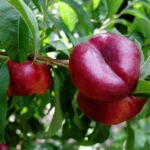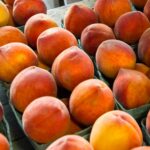Aussie reconciliation over Chile grape spat
An Australian campaign in April against Chilean grape imports culminated in the suspension of the first shipment from the South American country. The Australian Table Grape Association now claims its campaign was taken out of context, and has offered conciliatory words to the Chilean industry. CEO Jeff Scott says Australia is looking to boost its presence in Asia and would be happy to collaborate with Chile, if its competitor were interested.
Scott says the campaign to promote Australian grape consumption over potential Chilean imports earlier this year was 'blown out of proportion'.
He told www.freshfruitportal.com it was important to clarify the use of methyl bromide was not harmful to humans by the time it reached the supermarket shelf, with the campaign's main message focused on helping Australian growers.
"If we were able to export up to 50,000MT to 60,000MT of grapes, we would be very, very happy - so when you compare with Chile exporting one million (metric) tons, we are very small and that's why growers got upset with the potential of Chile coming in, because they could swamp our market.
"It wouldn't be a win-win for anybody; Chile would not get a decent price, and the Australian grower would be hurt badly. That’s why everything needs to be put into perspective.
"It certainly wasn’t a negative go at the Chilean table grape industry or anything like that, it was just an awareness campaign that there could be non-Australian grapes in the market – it’s the first time ever – and if there is, for the Australian public to support Australian growers."
He said the ATGA did not contact or put pressure on importers not to buy Chilean grapes.
"In terms of the end result, the growers obviously put a bit of pressure on whoever the perceived importer was, and that importer then made a commercial decision not to bring the grapes into Australia.
"It certainly didn't come from us, the decision to re-direct the consignment."
Scott says that while Australia's grape production is small, he would like to collaborate with competitors like Chile in counterseasonal markets to promote global grape consumption.
"Any co-operation, collaboration in terms of doing that sort of analysis would be a win-win for both countries - it's a question of whether Chile would want to entertain talking to us as we’re so small."
Industry variety shift expected
He says the Australian grape industry now looks set to shift from Red Globe to Crimson varieties in the coming years with plans to open up to new Asian markets.
Scott said Thompson Seedless and Menindee (Superior) varieties would continue on the white grape front, but changes were underway with reds.
"A lot of our growers are assessing the viability of some of the varieties we’ve got, and Crimson seems to be the favored variety this time around in terms of the Australian market and the international market, particularly places like China," he says.
"Five years down the track the indications are that it (shift) will happen - I think the Asian community now seems to be favoring the seedless varieties, there's still going to be a demand for Red Globe over a wide area, but from an Australian industry perspective our Crimson variety is certainly taking over Red Globe as the preferred export variety.
"Like all countries we’ve got our national breeding programme and the evaluation of those new varieties that have been bred - it's very much a long term project. There hasn’t been any outstanding new varieties to hit the world market in recent times."
Since Australian grapes were officially given direct export access approval by China in May, the industry's next goal is to expand into Korea and Japan.
"We have a bilateral coming up with Korea towards the end of August, and at the same time Korea are looking to gain access into Australia," he says.
"We primarily, maybe 90% to 95% now, export to Asian countries where we’ve got access, which is again counterseasonal to their season, so we're not competing with their own national product."
Photo: Alibaba














































